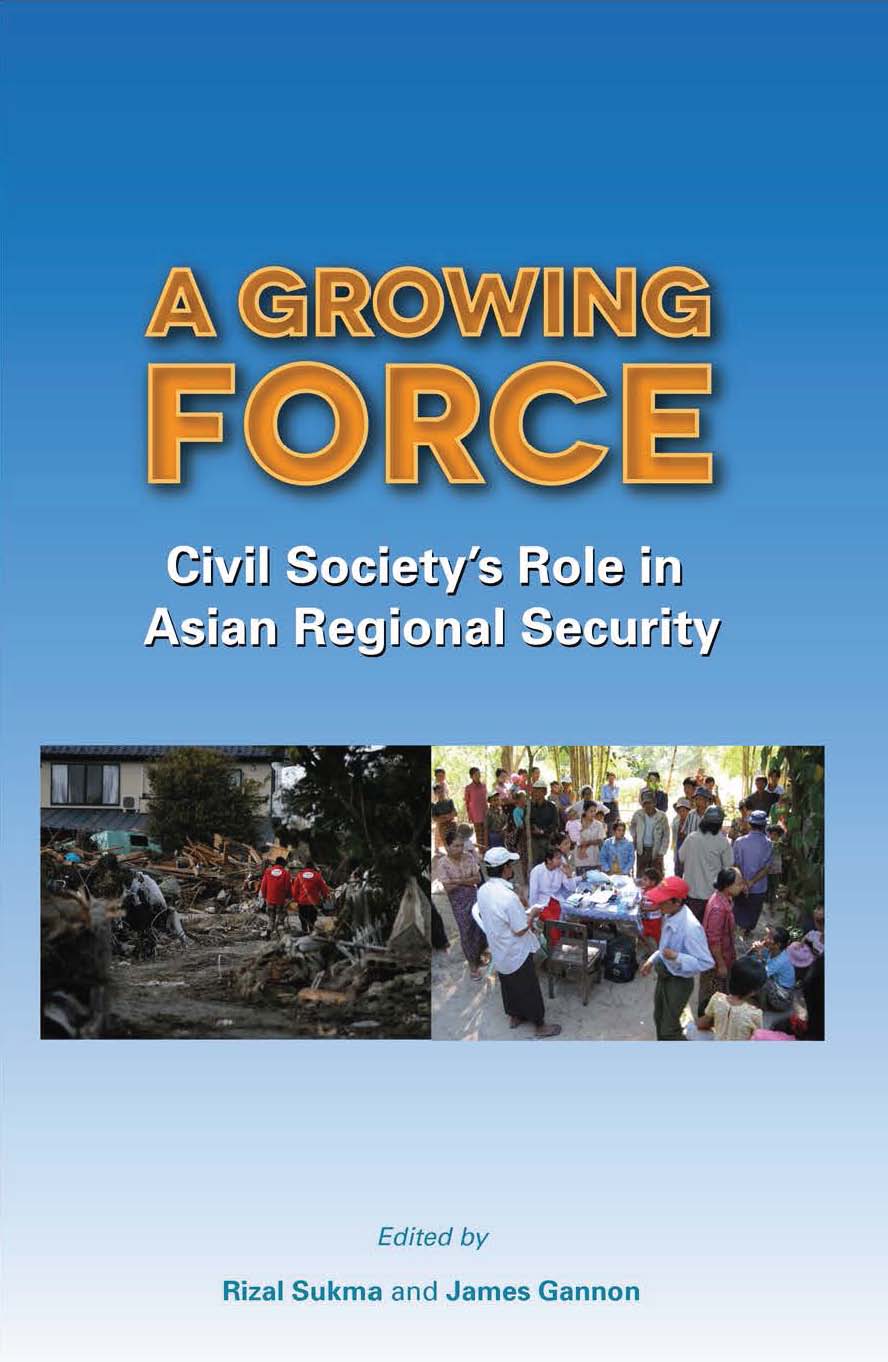East Asia is undergoing a remarkable transformation, but at the same time it is facing a growing number of traditional and nontraditional security challenges with the potential to destabilize the region. In recent years, there has been growing attention to ways to strengthen regional security cooperation at the government level but much less attention to what is happening outside of official circles. In fact, civil society organizations in the region have quietly been playing a greater role in responding to security threats, especially nontraditional security challenges.
In A Growing Force the authors explore how these organizations are contributing in five areas—piracy, disaster relief, human trafficking, health, and climate change—in order to diagnose how they are helping and what can be done to make them more effective.
This book is the result of a JCIE project on Strengthening Nongovernmental Contributions to Regional Security Cooperation.
Throughout the world, civil society organizations have quietly begun making important contributions to peace and security. This holds true even in East Asia, where state-centric approaches and the notion of national sovereignty hold greater sway than almost anywhere else. The five areas examined in this volume—health, human trafficking, climate change, disaster relief, and piracy—illuminate the variety of ways that nongovernmental organizations (NGOs) and other civil society organizations are helping to make East Asia more secure. Take the following cases, for instance:
Nearly half of the $14 billion in overseas aid provided after the 2004 Indian Ocean tsunami was raised by NGOs or involved them as implementing agencies, and NGOs played an even larger role in the response to the 2011 Japan earthquake.
In China, nearly one-quarter of all people with HIV/AIDS who are now on anti-retroviral treatment receive the drugs through a single NGO, AIDS Care China.
Anti-piracy NGOs and business associations have spearheaded a successful effort to expand the definition of piracy beyond what was traditionally recognized in international law, prompting governments in Southeast Asia to make combating piracy a top priority.
Civil society is clearly a growing force, especially on many of East Asia’s most pressing nontraditional security issues. However, the case studies in this volume also illustrate how its ability to contribute is constrained by a number of obstacles.
The diversity of the size and scope of the nonprofit sector in the countries across the region make collaboration difficult. The tendency in the region for giving to focus on traditional charity rather than support for NGOs severely limits financial resources for many groups and helps perpetuate the weak institutional capacity that limits NGOs’ potential contributions. In addition, government and societal resistance—or at least a failure to create an environment conducive to a vibrant civil society—has hampered NGOs’ ability to contribute to the public good. For instance, even after being lauded for their contributions in the health field and in responding to the Sichuan earthquake, 9 out of 10 Chinese civil society organizations still have to make do without official nonprofit status and the benefits that confers.
In light of this, A Growing Force identifies several steps that should be taken in countries around East Asia to strengthen civil society’s contributions to regional security:
Establish regional and subregional NGO networks in specific fields—for example, a regional association of humanitarian assistance and disaster relief groups similar to CONCORD in Europe and InterAction in North America—to plant the seeds for greater regional cooperation.
Continue funding from Asian and Western donors to encourage the development of local philanthropy that enables Asian NGOs to respond to regional security threats.
Promote greater engagement by national governments and regional institutions with civil society and high-level acknowledgement of NGOs as equal partners rather than as subsidiaries or well-intentioned amateurs in order to build the trust needed for NGOs and governments to more effectively complement one another.
Liberalize the nonprofit sector in the region through such measures as lower thresholds for nonprofit registration, lighter government regulation and intervention into NGO affairs, and expanded tax benefits. This, coupled with needed governance reforms on the part of civil society organizations, would better equip NGOs and governments to work together in dealing with the nontraditional security challenges that are taking on greater urgency in East Asia.
Contents
1. Introduction: Civil Society’s Role in Asian Regional Security
Rizal Sukma
2. Changing Concepts of Security and the Role of NGOs in East Asia
Gui Yongtao
3. Global Health, Civil Society, and Regional Security
Yanzhong Huang
4. The Role of Civil Society Organizations in Combating Human Trafficking in Southeast Asia
Jun Honna
5. The Growing Role of NGOs in Disaster Relief and Humanitarian Assistance in East Asia
Yukie Osa
6. Climate Change and Security in East Asia: Mapping Civil Society Organizations’ Contributions
Chung Suh-Yong
7. Civil Society Organizations and Maritime Security Cooperation: Opening Up the “Black Box” of Piracy
J.N. Mak
8. Conclusion: Strengthening Civil Society’s Contributions to Regional Security
James Gannon
9. Appendices: Civil Society Organizations Active in Asia

